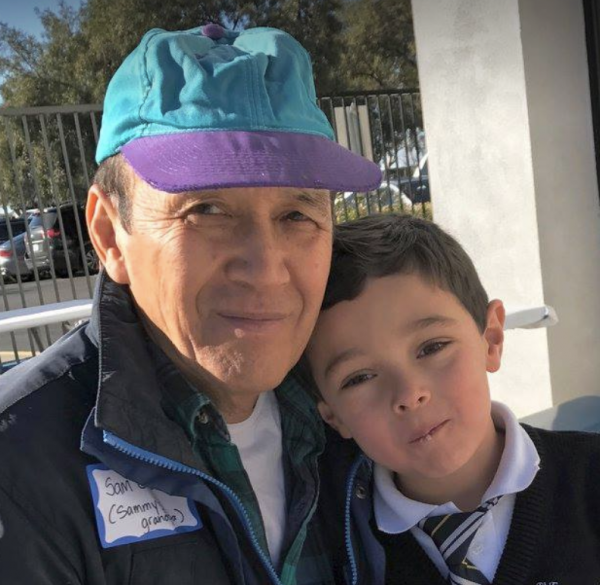A Prodigal Daughter
by S. M. Chen | 7 June 2019 |
“Learn from the mistakes of others. There’s not enough time to make them all yourself.” Eleanor Roosevelt, longest-serving First Lady of the United States (1933-1945)
One of the most powerful and moving parables of Holy Writ is that of the prodigal son.
It illustrates, on a level we, with our limited comprehension, can understand, the depth of love and forgiveness a father (or Father) possesses for a wayward son. I have no doubt that, had he a daughter in similar circumstance, the father in the parable would have been equally benevolent.
In my reading of the Gospels, nothing in the interaction of the Master with numerous females—His mother, Mary Magdalene, Martha, the woman at the Samaritan well, the daughter of Jairus, et al—leads me to believe He considered females 2nd-class citizens. They and males were equals. The gospel was intended for both.
Then there’s Hoda Muthana.
The following is not intended to endorse or oppose the Administration’s position about her but, rather to contrast her plight with that of the prodigal son. (Hoda’s passport was actually revoked by the predecessor of the current President of the United States).
Sometimes, once taken going the other direction, the road to redemption is closed. And may not be reopened.
Hoda’s father was a Yemeni U. N. diplomat. Her relationship with him may have been strained, as it was with her Middle Eastern mother. Hoda was not an only child, but that seemed to have made no difference.
To all appearances, Hoda, 24, became radicalized online, without meeting an ISIS supporter in person (a comparative rarity). Leaving a fairly comfortable, albeit somewhat restricted (she was not permitted a cell phone before she graduated high school) existence near Birmingham, Alabama, using funds intended for college, she covertly traveled to Syria and married.
Not once, but thrice.
Her first two ISIS husbands were killed in conflict.
Her third marriage ended in divorce.
She now has an 18-month-old son, Adam, who wears a coat emblazoned with elephants and resides in a squalid Kurdish-run camp in northern Syria.
Some 1,500 similar individuals (mothers and children) from 40 countries await the outcome of their requests for repatriation.
Her attempts at returning to the U.S. have been rebuffed. She is not wanted. Although born in New Jersey, the matter of her citizenship is in question. There are purportedly cogent arguments on both sides.
Her father, who professedly despises ISIS, sued the U.S. government on her behalf. She is, after all, still his daughter.
She claims to have repented and no longer calls for killing Americans (sometimes by televised beheadings). She is supposedly willing to serve whatever punishment is deemed appropriate by the U.S., to which she now wishes to return, for her son’s sake, if not her own.
She seems to be the victim of her own poor decisions. The Law of Unintended Consequences in full display.
What if the way home of the prodigal son were blocked after his epiphany while feeding hogs in a foreign land, reflecting that his father’s servants were eating better than he?
The parable wouldn’t have been the same, if at all.
The story would have had a different ending.
Hoda’s story is not over. We do not know the outcome. What seems apparent is that it is a sad story, one that didn’t necessarily need to happen in this manner.
But we humans have free will. Not all choices we make are salutary. It has ever been this way, since Eden.
At the end of time, there will be the sheep and the goats. Some will be on the right hand of the Judge, and some on His left hand. With a nod to novelist Jonathan Safran Foer, everything will be illuminated.
Speaking of elephants, my daughter recently shared a brief, heartwarming video about an organization called “Stop Poaching Now.” The video depicted a group of armed women who actively defend African elephants against poachers. They are more successful than one might imagine. Coming from varied backgrounds, sometimes abusive, some of the women seem to have found purpose in life.
But what if something altruistic like this didn’t appeal to people like Hoda?
There are yet many opportunities to do good.
How many?
Your guess will likely be on the low side (mine was).
Over 1.5 million nonprofit organizations exist in the USA alone (National Center for Charitable Statistics).
Worldwide, of course, the number is greater.
And, as Mahatma Gandhi observed: “The best way to find yourself is to lose yourself in the service of others.”
He didn’t specify who the “others” are.
Although some may maintain it means humans, I think it safe to include animals.
Not that good works need be restrictive or exclusive.
I admit to being partial to elephants. Blessed with longevity, a prodigious memory, great size and strength, and a gentle and compassionate nature, they go off without fanfare to a secret place when their time has come to leave Earth.
None of us is sufficiently wise to have made only good decisions. We are where we are by grace, not by our own merits.
It is not incumbent on us to, like the elder brother of the Prodigal Son, look down with aspersion on individuals such as Hoda who have made less than optimal choices.
Mercy is not asymmetric. That which we one day hope for ourselves may be granted if we show the same for our fellow humans.
For there but for the grace of the Almighty go I.
 S.M. Chen writes from California.
S.M. Chen writes from California.




